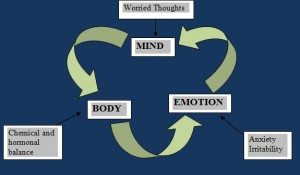Depression is a serious condition that can cause devastating life consequences. It can strike anyone…including men. In the USA more than 6 million men experience clinical depression each year. According to the National Institute of Mental Health many men do not acknowledge their depression. When men are reluctant to talk about their feelings, they are less likely to ask for help. Depression is a treatable condition. The sooner men get help, the sooner they can begin recovery.
Men and Depression: The Experience
The way men experience depression differs generally from women’s experience. Women with depression are more likely to have feelings of sadness, worthlessness, and excessive guilt. Men are more likely to be very tired, irritable, and lose interest in once-pleasurable activities. They may have difficulty sleeping or sleep too much. In addition, men are likely to turn to alcohol or drugs when they are depressed. Depressed men may also become frustrated, discouraged, and angry. Over time this can lead to abusive behavior with family and with co-workers.
Dr. Martin Seligman of Cornell University researched stress and depression. He found that the strongest predictor of depressive responses was a sense of lack of control over life situations. A characteristic of this lack of control is that men with depression often have negative thoughts about their ability to manage life, and may also have strong feelings of irritability and powerlessness leading to aggressive behavior.
The causes of depression are as varied as the individuals who suffer from it. An experience that causes depression for one person may not be disturbing to another. However, the events associated with chronic stress can often lead to depression. These situations present constant difficulties that build over time. They may include:
- Fulfilling multiple roles
- Excessive demands for overtime at work
- Experiences of abuse
- Suffering with an illness
- Care-taking of a sick family member
- Major changes in life including the birth of a new baby, known as paternal post-natal depression in men
One of the most recent discoveries pertaining to depression in men is the very real paternal post-natal depression that new fathers may experience. It is common to think of postpartum depression as only effecting new moms, a bias that explains why this depression is misdiagnosed in men. In an article published in The Journal of American Medical Association a meta-analysis of research found that 1 in 10 expectant fathers also experienced depression after the birth of their child. It is suspected that hormonal changes are responsible for this depression. Symptoms include sleep deprivation or sleeping too much, irritability and anger, working constantly, debilitating anxiety, drinking and gambling.
Men and Depression: Treatments
There are treatments that can relieve depression. According to the National Institute of Mental Health, treatment can alleviate the symptoms in over 80% of the cases. Most people know about antidepressant medications through advertisements in the media. There are more options.
There are treatments that go hand-in–hand with medical interventions and give the depressed person an active role in dealing with depression. These methods include therapeutic counseling and practices that enhance self-direction and peace of mind such as meditation, prayer, yoga and physical exercise. Used in conjunction with medical treatment of depression, these supportive techniques can be practiced to maintain health long after medication has tapered off.
 Balanced treatment includes attention to the mind-body-emotion connection. This is the direct wiring through which the mind (the way we think), connects to the body (for example chemical or hormonal imbalance) which connects to the emotions (such as anxiety or sadness). These three systems work in an interactive manner.
Balanced treatment includes attention to the mind-body-emotion connection. This is the direct wiring through which the mind (the way we think), connects to the body (for example chemical or hormonal imbalance) which connects to the emotions (such as anxiety or sadness). These three systems work in an interactive manner.
By initiating an intervention in one area the person can, by association, influence the others. For example, one may achieve a full-force intervention by:
Step one: See a physician or mental health professional, start appropriate medication and initiate a beginning exercise program (the body).
Step two: Add professional assistance through emotional and cognitive-based counseling (emotions and thinking), stress management and, if appropriate, drug/alcohol treatment.
Step three: Follow-up with a healthy diet, learn meditation and commit to a long-term exercise program.
That important first step when suspecting depression is to get help by seeing a physician or mental health professional. A thorough evaluation will help pinpoint the difficulty and put that depression on the road to recovery.